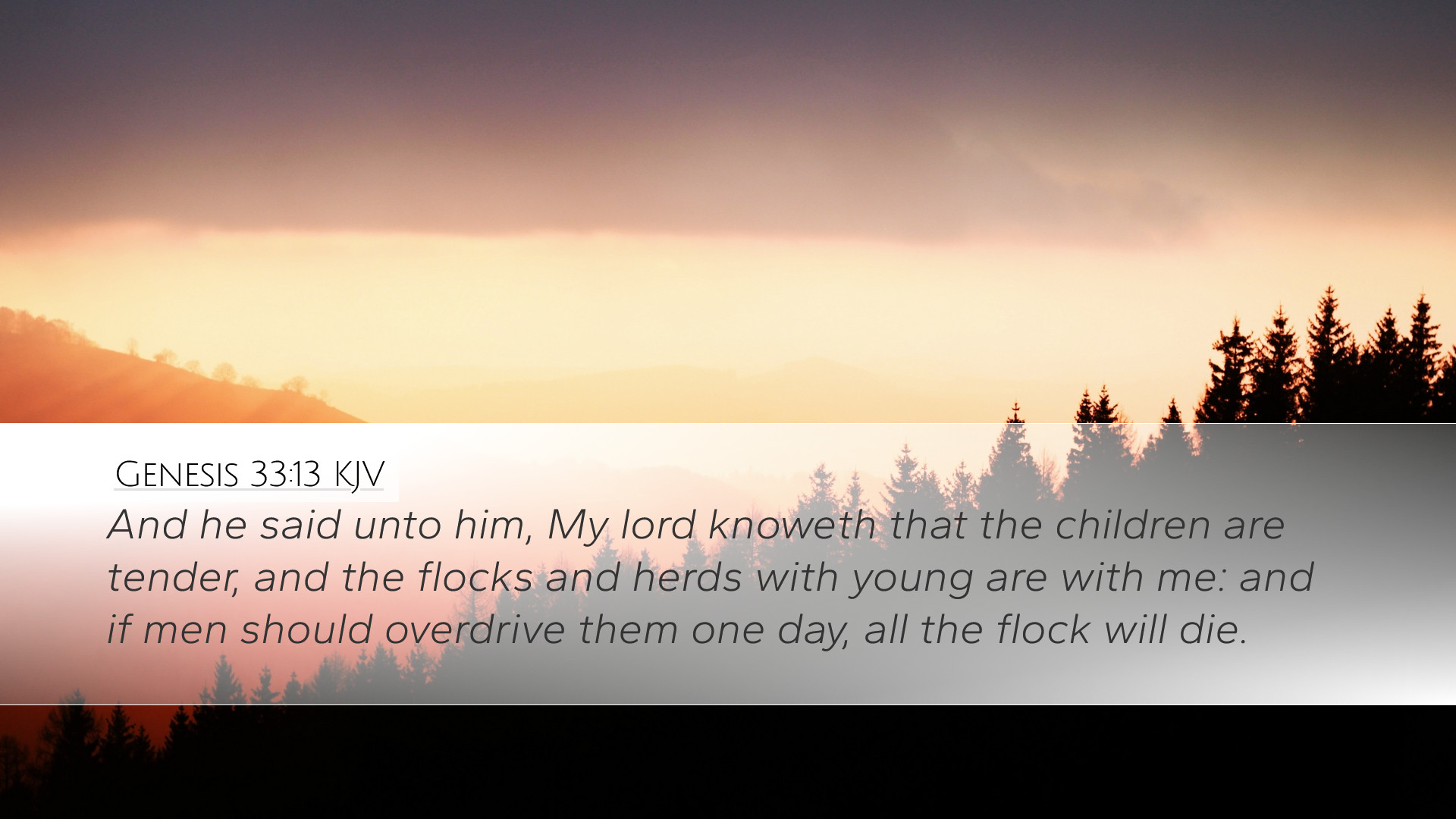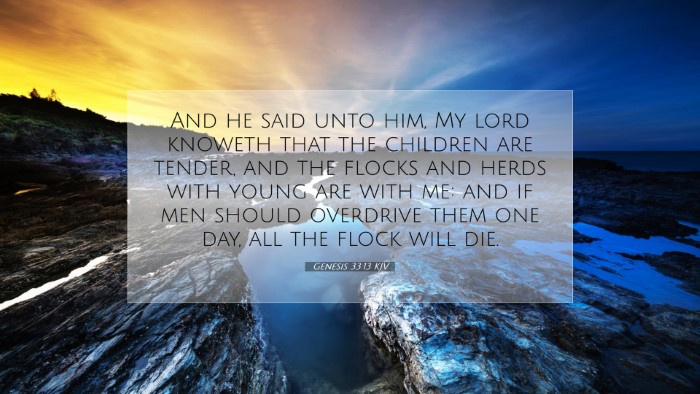Commentary on Genesis 33:13
Genesis 33:13 states: "And he said unto him, My lord knows that the children are tender, and the flocks and herds with young are with me: and if men should overdrive them one day, all the flock will die."
Introduction
This verse comes in the context of Jacob's reconciliation with his brother Esau after many years of estrangement. Jacob's apprehensions concerning his brother's wrath and his family’s safety are expressed in this verse as he seeks to negotiate the pace of their reunion. It reveals the human dynamics of family conflict, the tender care for one’s own, and the need for patience when restoring relationships.
Exegesis and Theological Insights
1. Jacob's Concern for His Family:
Jacob articulates a deep concern for the well-being of his children and livestock, emphasizing their vulnerability. This concern can be interpreted as an insightful reflection on the responsibilities that come with leadership and stewardship. According to Matthew Henry, Jacob's cautious approach demonstrates the wisdom of assessing one's circumstances and acting with prudence, especially when it comes to family matters.
2. The Meaning of 'Tender':
The choice of the word 'tender' to describe his children indicates their fragility and Jacob's protective role. Albert Barnes notes that this portrayal elicits sympathy and displays the nurturing nature of Jacob, showing that he prioritizes compassion over haste. It suggests a broader theological truth that God cares for His own with tenderness, representing His fatherly concern for His creation.
3. The Risks of Overdriving:
Jacob employs the metaphor of 'overdriving' the flock to illuminate the consequences of undue strain on vulnerable entities. Adam Clarke suggests that this metaphor not only pertains to livestock but extends to the human relationships where undue pressure can lead to disastrous outcomes. His statement serves as a reminder that in relationships, especially familial, we must consider the welfare of each party involved.
Pastoral Applications
1. Navigating Family Dynamics:
For pastors and church leaders, Jacob's narrative encourages an understanding and compassionate approach towards families in distress. Like Jacob, leaders are called to protect the vulnerabilities of their congregants and seek out relational harmony by recognizing the delicate nature of personal relationships.
2. Encouraging Patience:
This passage serves as a model for patience and pacing in ministry. Just as Jacob urged moderation with his family’s travel, there is wisdom in allowing for gradual progress in spiritual growth and interpersonal reconciliation. Leaders might reflect on this while guiding their congregations through systemic change or during conflict resolution.
Theological Reflections
1. God’s Nurturing Nature:
Jacob's care for his family and flocks can be seen as a reflection of God’s nurturing nature. The connection between Jacob’s actions and God’s treatment of His people can be highlighted in sermons and teachings, reminding congregants of the divine care and attentiveness that undergirds our existence.
2. The Importance of Communication:
This verse underscores the significance of open and honest communication in relationships. Jacob’s diplomatic communication with Esau illustrates the necessity of expressing one’s concerns clearly and considerately to foster understanding and avoid conflict, a lesson that resonates deeply in both ecclesiastical and personal settings.
Conclusion
In summary, Genesis 33:13 offers profound insights into leadership, familial relationships, and divine care. By reflecting on the dynamics between Jacob and Esau, we gain critical lessons in nurturing relationships and managing our responsibilities toward others. The tender care depicted in this verse is a reminder of the overarching call for believers to embody these qualities in their walk with God and with one another.


